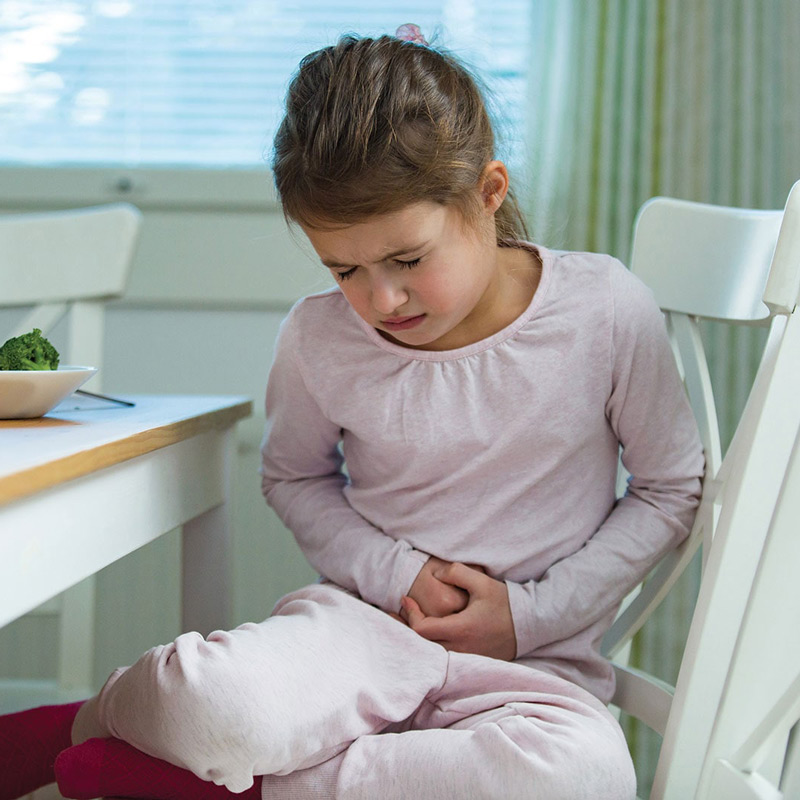Inflammatory bowel disease, or IBD, is a term used to describe two chronic and common inflammatory conditions, Crohn’s disease, and ulcerative colitis. Both of these conditions can have debilitating symptoms that can leave you and your child feeling helpless and, in many cases, embarrassed.
Crohn’s disease causes inflammation in the digestive tract. It can affect any part of the digestive tract from the mouth to the anus.
Ulcerative colitis causes inflammation and ulcers in the colon.
It’s normal for kids to throw up, have stomach pains and have diarrhea from time to time, but for kids diagnosed with IBD, these symptoms may go on for longer periods of time.
Symptoms
IBD symptoms can vary depending on how severe the inflammation is. Many patients experience periods of active and sometimes aggressive symptoms followed by periods of remission. Signs and symptoms for both Crohn’s disease and ulcerative colitis include:
- Fever
- Stomach pain and cramps
- Bloody stools
- Sudden diarrhea
- Weight loss
- Constipation
- Mouth sores
- Sores near the anus
- Difficulty gaining or maintaining weight
- Lack of growth in height
What Causes IBD?
The cause of IBD is unknown, but it is known that diet and stress can trigger both conditions. IBD tends to run in families and is more common in people who have family members with the disease.
Experts also have linked IBD to problems with the immune system attacking healthy cells in the digestive tract and gut.
Treatment
There currently isn’t a cure for IBD, but a pediatric gastroenterologist will help you come up with a plan to help manage and limit your child’s symptoms. Management plans can include a combination of medication, vitamins, nutritional changes and, in more serious cases, surgery may be required.
In many cases, with symptom management, kids can experience long periods, even years, of remission without symptoms.
What You Can Do
The best thing that you can do for your child if they are diagnosed with IBD is to help them manage their symptoms and overall health.
Keep an open dialogue with your child about their symptoms and explain to them the importance of communication, exercise, and diet. Let them know it's important to talk to you if they have a flare up of symptoms or they are experiencing any pain.
Call your pediatric gastroenterologist right away if your child is experiencing any pain, consistent diarrhea, bloody stools, or a lasting fever.
The Gastroenterology, Hepatology and Nutrition Center at MemorialCare Miller Children’s & Women’s Hospital Long Beach provides a multi-disciplinary approach to testing, treatment and symptom management for children with liver, nutrition and gastrointestinal conditions, such as IBD, for children from birth to 21-years-of-age.


